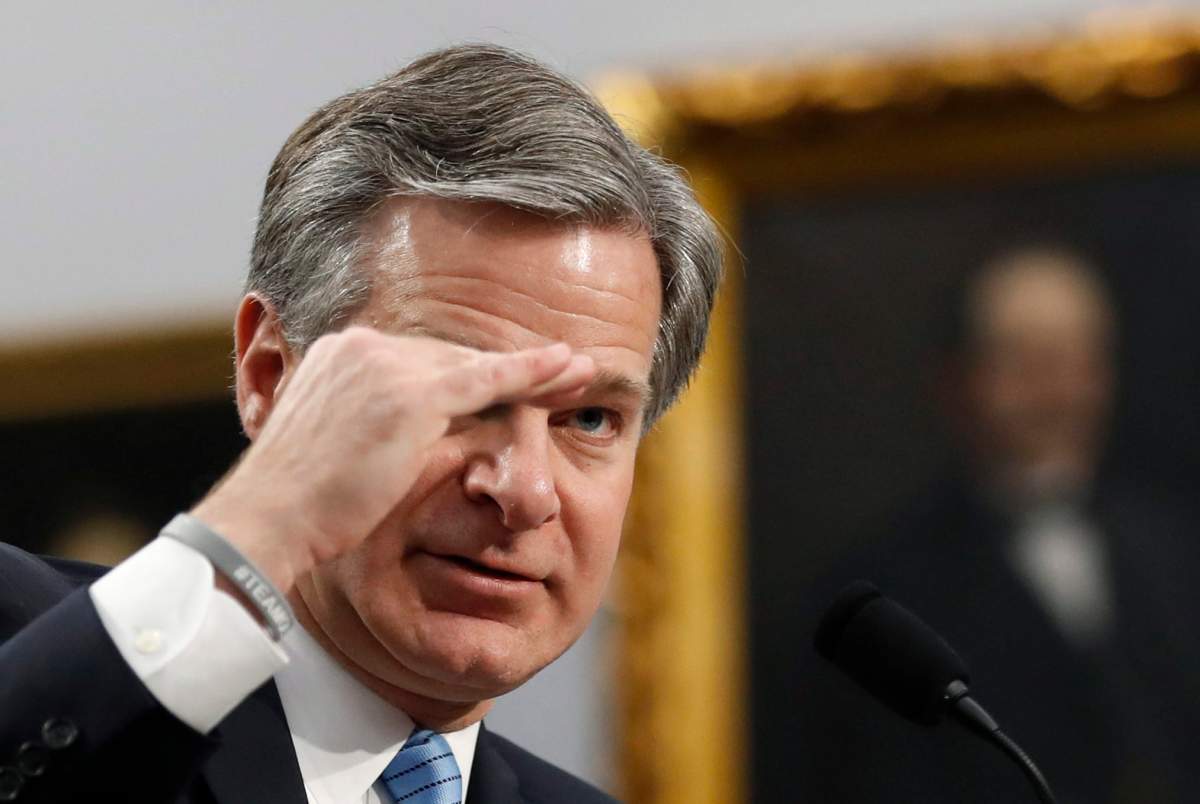Russian interference was strong in the 2018 U.S. midterm elections — and the curtain hasn’t even risen on what meddlers plan to do in 2020, FBI director Christopher Wray said in a speech to the Council on Foreign Relations Friday.

Wray described Russian efforts to interfere in the country’s elections as a “significant counterintelligence threat” and said agencies, including the bureau and the Department of Homeland Security (DHS), have taken task forces they established for the midterms and made them permanent, The New York Times reported.
WATCH: April 26 — Admitted Russian spy Maria Butina to be sentenced in U.S., faces deportation

“We recognize that our adversaries are going to keep adapting and upping their game,” Wray said in his speech.
“So we are very much viewing 2018 as just kind of a dress rehearsal for the big show in 2020.”

Get daily National news
READ MORE: Mueller report finds no collusion with Russia but ‘does not exonerate’ Trump
Wray and others have said that Russian operators are carrying out influence campaigns with the aim of undermining faith in U.S. democracy.
The use of social media, propaganda, fake news and false personas has been carried out with an object to “spin us up, pit us against each other, to sow divisiveness and discord,” the FBI director said.
And not just during elections, either. This is happening pretty much every day, he added.
WATCH: April 18 — Takeaways from the Mueller Report

The 2018 midterms didn’t show any “material effect on election infrastructure,” Wray said, according to CNN.
But he said foreign actors will likely “keep at it” and “up their game” as the 2020 election approaches.
READ MORE: U.S. judge gives Russian agent Maria Butina 18 months behind bars
The network noted that Wray’s tone contrasts heavily with attitudes that members of the Trump administration have expressed about Russian meddling.
Jared Kushner, a senior White House advisor and U.S. President Donald Trump’s son-in-law, played down Russian meddling on Tuesday, saying that operators bought “some Facebook ads to try and sow dissent.
“I think the investigations and all of the speculation that’s happened for the last two years has had a much harsher impact on our democracy than a couple Facebook ads,” he said.
Special counsel Robert Mueller‘s report found that Russia’s Internet Research Agency carried out a propaganda operation that involved creating false accounts that appeared to support Trump and oppose Hillary Clinton in the 2016 election.
The special counsel also identified what he called a “hacking and dumping” operation that would see Russian intelligence workers hack into the computers and email accounts of people with Clinton’s campaign, as well as the Democratic Congressional Campaign Committee (DCCC) and the Democratic National Committee (DNC).
They stole hundreds of thousands of documents from email accounts and networks, and some of them were later released by Wikileaks.
- Alberta budget 2026 comes with spending hikes but $9.4B deficit
- Poilievre calls Trump’s Canada attacks ‘wrong,’ urges U.S. trade stability
- Liberals survive confidence vote as House passes budget implementation bill
- Liberal, Bloc Québécois rematch in Terrebonne riding after Supreme Court nixes result








Comments
Want to discuss? Please read our Commenting Policy first.